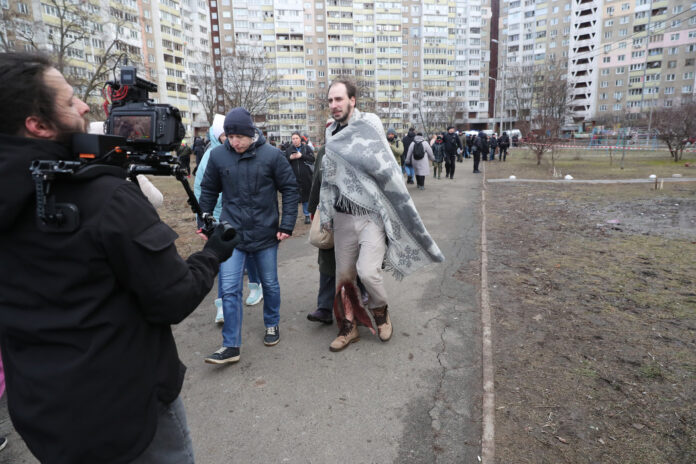Earlier today, Russia initiated a widespread assault on Ukraine, employing a combination of cruise and ballistic missiles along with Shahed-type drones. This coordinated attack targeted six regions across Ukraine, causing casualties and significant destruction in major cities such as Kyiv, and Mykolaiv, and potentially extending to areas as far west as Lviv. In Kyiv alone, the capital experienced its first bombardment in two weeks, leading to at least four fatalities and numerous injuries, including a pregnant woman, as reported by the State Emergency Service. This operation marks a continuation of the conflict’s devastating impact on civilian life and infrastructure, underscoring the ongoing humanitarian crisis in the region.
The Ukrainian Armed Forces responded by intercepting a portion of the incoming threats, downing 44 drones and missiles out of the 64 launched in these attacks. Despite these defensive efforts, the damage was considerable, with critical infrastructure and residential buildings significantly affected. The Russian Defense Ministry claimed that the strikes were aimed at Ukrainian facilities involved in the manufacture of military hardware, asserting that all intended targets were hit.
The European Union, represented by its top diplomat Josep Borrell during a visit to Kyiv, found itself directly confronted with the reality of the situation as Borrell began his day in an air raid shelter. This visit underscores the EU’s commitment to supporting Ukraine amidst the ongoing conflict, with all 27 EU countries agreeing on an additional aid package worth 50 billion euros for Ukraine the previous week. The assistance is seen as crucial for Ukraine, which faces shortages in ammunition and personnel.
The attacks have not only resulted in immediate loss and suffering but also highlighted the broader strategic and humanitarian challenges facing Ukraine. President Volodymyr Zelenskyy emphasized that air defense and electronic warfare systems to counter drones are among Kyiv’s top priorities, reflecting the urgent need for enhanced capabilities to protect civilian areas and critical infrastructure from such assaults.
The international community’s response to these developments will be pivotal in shaping the course of the conflict, as calls for sustained support for Ukraine grow louder against the backdrop of Russian aggression. The situation remains fluid, with both sides continuing to engage in a conflict that has far-reaching implications for regional stability and global security.
Image is licensed under the Creative Commons Attribution 4.0 International license and was created by Kyiv City State Administration.









